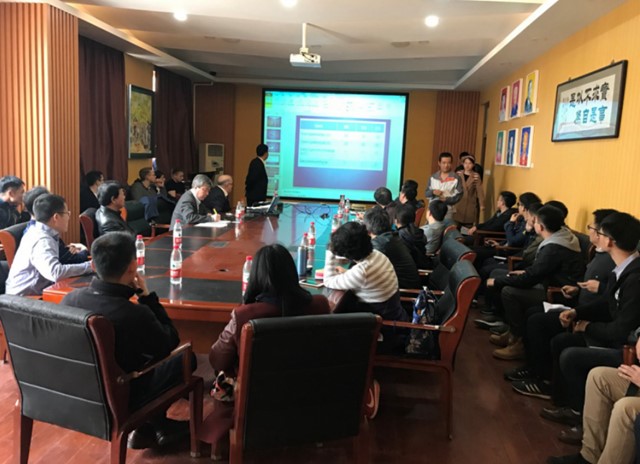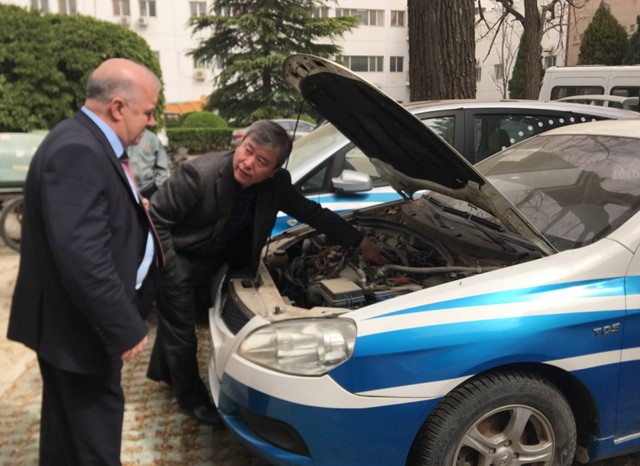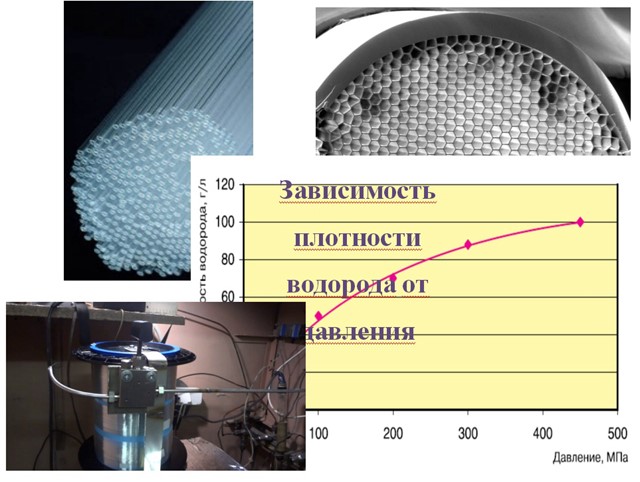
On March 26, 2018, Prof. Чабак Александр Фёдорович of Kurchatov Atomic Energy Research Establishment was invited for academic exchanges with School of Mechanical Engineering. During his visit, Prof. А. Ф. Чабак made an academic report on Hydrogen—a Clean Mechanism for the Harmonious Coexistence of Humans and Nature. The report systematically expounded the development prospects of hydrogen energy, the key bottleneck of hydrogen energy application, and the future of hydrogen energy development. It specifically introduced the ideas, implementation methods, and technical indicators of micro-tube hydrogen storage technology. Representatives had a lively exchange and discussion on hydrogen energy storage technology.

The report meeting was presided over by Prof. Sun Baigang, and he shared his research experience and achievements in the field of hydrogen storage. The academic exchange activities also invited many well-known experts and scholars in the field and other domestic counterparts in the field. They are Prof. Jiang Lijun, Chairman of the China Association for Hydrogen Energy, Prof. Wang Shumao of General Research Institute for Nonferrous Metals, Zhang Lifang, General Manager of JONTON Clean Energy, Li Hai, General Manager of Beijing Guohong Hydrogen Energy Company, Prof. Wang Guowen of China Academy of Aerospace Propulsion Technology, and representatives from SAC/TC309, China Internal Combustion Engine Industry Association, and Harbin Engineering University.
Since the implementation of the 13th Five-Year Plan, hydrogen has gradually increased into a national strategy. The China-made 2025 and the mid- and long-term development plans for new energy vehicles have paid great attention to hydrogen and fuel cells. Local governments have issued hydrogen energy development roadmaps to further develop and promote hydrogen energy, which is also a major measure for China to carry out energy structural adjustments and control air pollution. Today, the technical bottleneck that limits the application of hydrogen energy is how to achieve efficient and safe hydrogen storage. High efficiency and safety of hydrogen storage also directly restricts the market competitiveness and development potential of hydrogen fuel power technology.

The domestic have done a lot of research on key technology of hydrogen storage, and achieved certain results. The technical approaches to solve the problem of hydrogen storage are: high pressure gaseous hydrogen, cryogenic liquid hydrogen, metal adsorption hydrogen storage, carbon hydrogen storage. However, the density of hydrogen in the above technical way still stays within the range of 4-6%wt. Prof. А. Ф. Чабак has developed a breakthrough technology for super-high pressure hydrogen storage based on the principle of micro pipes. The weight density of hydrogen storage can reach 10% to 14.75%, and there are 10 core patented technologies for high energy density hydrogen storage.
Through the academic exchange, the domestic counterparts learned a preliminary understanding of the basic principle of Prof. A. Ф. Чабак’s new hydrogen storage technology, and extended some limitations in the traditional knowledge of hydrogen storage, which provides some useful references for China’s hydrogen storage. CASC and other organizations also conducted special exchanges with him. In addition, Prof. А. Ф. Чабак also conducted special consultations with China National Nuclear Corporation.